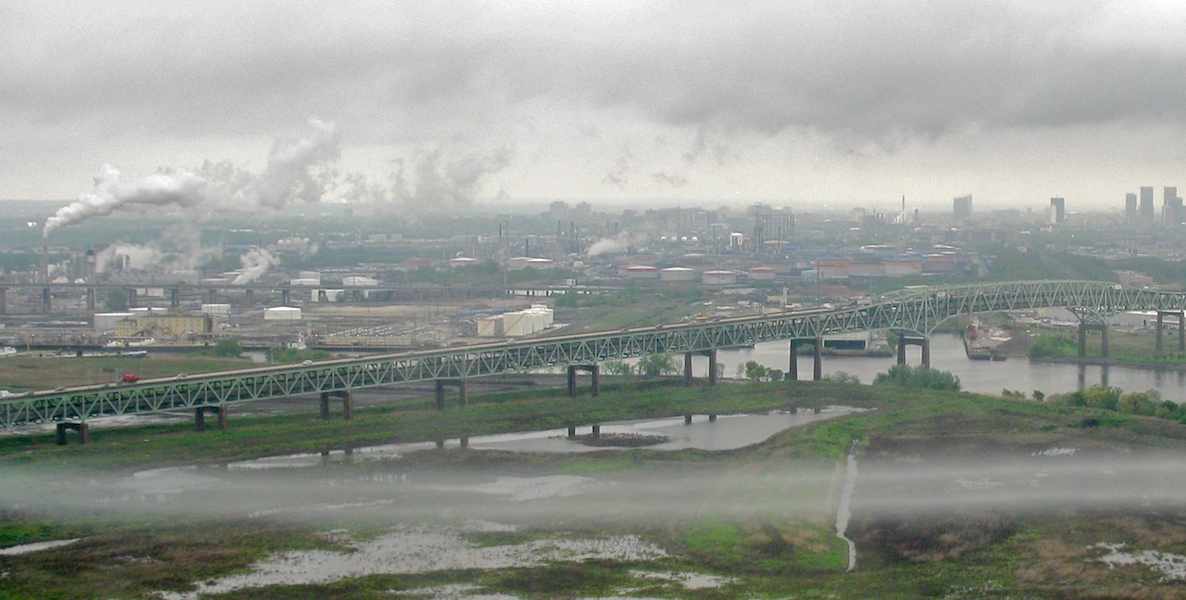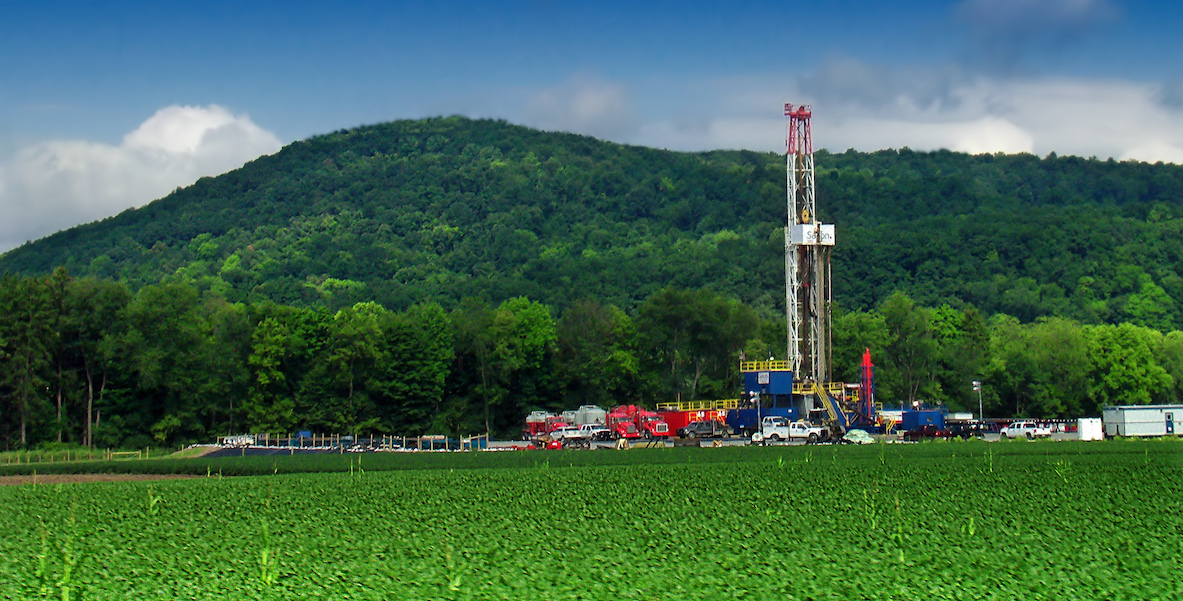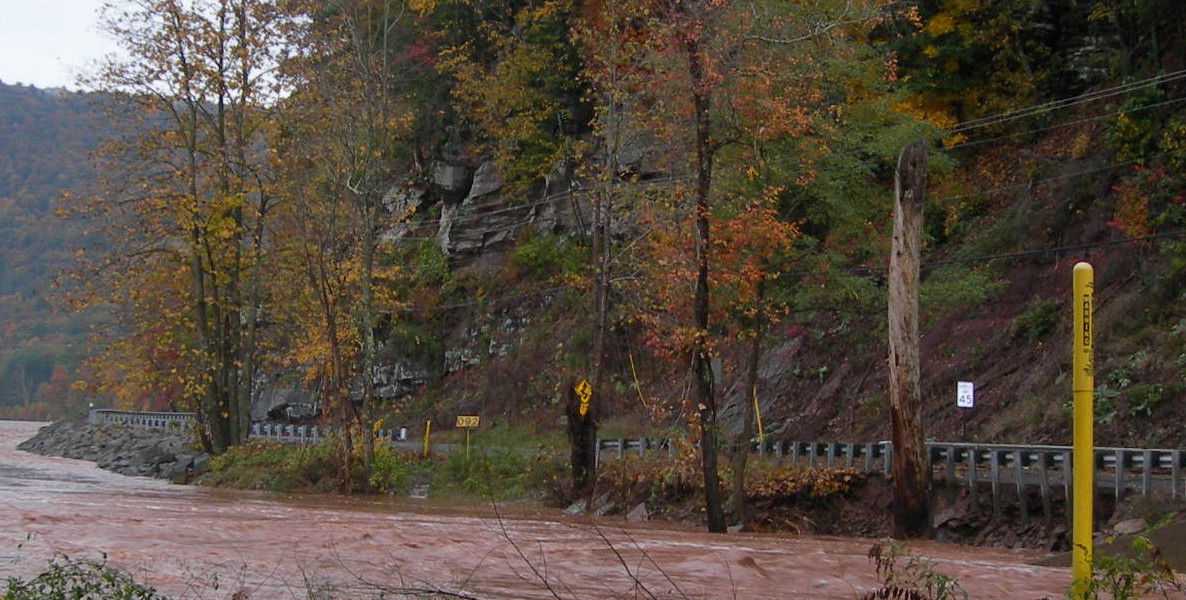John Childe is a Dauphin County environmental lawyer who has been using a once obscure Article in the Pennsylvania Constitution to create a new and powerful legal edifice that could soon be the state’s most significant environmental institution.

Childe’s law court filings on behalf of the Pennsylvania Environmental Defense Fund Foundation, and recent decisions by the state Supreme Court in response to these filings, now find the state on the brink of a singular event: the creation of an independent environmental public Trust with a potential bankroll of many millions of dollars and a mandate to preserve the natural environment.
In 2012, Childe began to sue the state in a case focused on their leasing of public lands to Marcellus Shale gas drillers. The Foundation charged that the state was unconstitutionally leasing out the state lands and also that it had improperly converted and spent some $1.1 billion dollars it has received in various royalties and bonus payments for granting extraction rights.
In June of 2017, Childe’s five-year effort finally won him a sweeping state Supreme Court decision in favor of the Foundation that had two major effects:
- The first was to make Article 1, Section 27 of the state Constitution, the “environmental rights clause,” the living law of the land with regard to its plain language declarations—namely, that the public has a right to clean air and pure water, and that the state has a duty to act as a “trustee” of public natural resources and maintain them for present and future generations.
- And the second was that the Court specifically declared the existence of an environmental public Trust entity, similar to private financial trusts, into which the monies in dispute (pending final disposition of the still open case) should be deposited.
Back in 1971, the people of Pennsylvania had overwhelmingly voted for the environmental rights amendment, but in an “only in Pennsylvania” story, the amendment had been fenced off for decades by the rulings of state court judges who fudged and fumbled with its true meaning.
The Supreme Court’s decision last year was, therefore, a Zeus-like bolt of lightning that rebirthed Article 1 Section 27’s plain language from years of obscurity as a vapid artifact of Earth Day idealism.
Justice Christine Donohue, the author of the Court’s majority opinion, specifically noted that Section 27 is located in Article 1 of the Constitution and thus ranks among “the most sacred and inviolable rights of the people.” She then ruled that the proper, constitutional use of the shale gas monies is “… to manage the corpus (principal value) of the environmental public Trust for the benefit of the people to accomplish its purposes—conserving and maintaining the corpus by, inter alia, preventing and remedying the degradation, diminution and depletion of our public natural resources.”
“There is no indication,” Justice Donahue, also wrote in that historic opinion, “that the General Assembly considered the purposes of the public Trust or exercised reasonable care in managing the royalties in a manner consistent with its section 27 Trust duties.”
Recent decisions by the state Supreme Court in response now find the state on the brink of a singular event: the creation of an independent environmental public Trust with a potential bankroll of many millions of dollars and a mandate to preserve the natural environment.
In fact, the Legislature for the better part of a decade had been acting as though it had every right to appropriate and spend monies earned from Marcellus Shale public lands. Even in the face of last year’s Court decision, the Legislature merely saw fit to make a few cosmetic tweaks to the language of the annual Fiscal Code bill and then went ahead and spent shale gas proceeds in this year’s (2018-19) budget act.
In 2005, Marcellus Shale was a term known mostly to geologists; by 2010 Pennsylvania was being portrayed as the “Saudi Arabia of shale gas” with 40-years’ worth of wealth trapped in the shale deposits miles beneath its surface. About 130,000 acres of state forest land in north central Pennsylvania are now under lease for oil and gas extraction. Meanwhile another 700,000 acres of surface park lands sit atop Marcellus deposits the mineral rights of which are held by private owners and could also be developed.
![]()
Childe’s briefs in the case have spelled out how as the industry ramped up production it had been willing to pay big bucks for drilling concessions on state land and that two prior Governors and the General Assembly greeted the phenomenon of Marcellus Shale gas drilling as a straight-out opportunity to make money and thus not have to raise taxes. (Gov. Tom Wolf re-imposed a moratorium on any new leases in 2015, but valid contracts for gas extractions on state lands have continued.)
The Supreme Court’s opinion condemns the state’s profit- making venture with Marcellus Shale drilling as a wrongful assumption by the state of the role of “proprietor” over state lands.
On his weekend breaks, Childe often jumps into his off-road pickup truck and drives to The Pennsylvania Wilds, forest lands north of Route 80 where much of the Marcellus drilling on public lands is taking place. He is a close observer of what has been occurring and is of the opinion that Department of Conservation and Natural Resources (DCNR) staff woefully underestimated the extent of the surface disturbances to park land that would be caused by Marcellus drilling.
Did the Supreme Court, facing what in effect would be a $1 billion judgement against the Commonwealth, prudently remand the case over some thorny but minor details as a way of slow-walking the impact on the state budget?
Extracting Marcellus gas is an intense industrial process that requires road building, large multi-well drilling pads, towering drilling rigs, storage and staging areas for sand and materials that are constantly trucked in and construction of numerous out-buildings to house pumping systems to inject and control fracking fluids that flow through pipes that go several miles down below the surface and extend laterally for thousands of feet.
![]()
It has been clear to Childe and the Foundation for more than a decade that something needed to be done about the disruptive uses and altered and damaged landscapes caused by Marcellus Shale drilling on state-owned lands.
But the powerful and pivotal Court decision last year was a delayed victory because the Supreme Court stopped short of granting the Foundation its complete goal: a declaratory judgement that all payments made for gas extraction on state forest lands are and must remain part of the corpus of Article 1, Section 27.
Instead, the Supreme Court declared that it needed to hold off on a final disposition and remanded the case for further fact finding. The Court said it needed to square the creation of this first ever environmental public Trust with the provisions for private trusts—the only reasonably available “trust” model for the court to rely upon.
The high court specifically asked a lower trial court to parse out and interpret for public trust purposes the meaning of terms like “lease,” “rent,” and “bonus payment,” all of which the DCNR has confusingly used to describe the revenues it has received from the Marcellus Shale gas drillers.
No doubt some interpretation of terms has been necessary to aid in the creation of the public Trust, although why it should stall final judgement for over a year raises a key question: Did the Supreme Court, facing what in effect would be a $1 billion judgement against the Commonwealth, prudently remand the case over some thorny but minor details as a way of slow-walking the impact on the state budget?
![]()
In any event, Childe for the past year has been preoccupied with working through the outstanding parts of the case in a paper battle of briefs, motions and cross motions submitted to Judge Mary Hannah Leavitt, the head of the Commonwealth Court. In this contest, Childe has the upper hand in that he already has a Supreme Court opinion that makes clear that the State, as a fiduciary, has an over-arching duty to maintain the corpus of the Trust.
At some point, well after this year’s election—which features contests for Governor, all PA House Members and half the State Senators—the hammer will fall. Perhaps by early 2019, the environmental public Trust will exist and be in some significant amount funded.
Childe and the Foundation have already foreshadowed how they intend to drive the task list of the state Natural Resources agency in connection with its duties to the Trust. On June 11 they sent a letter to Cindy Dunn, the Secretary of DCNR demanding that she immediately halt all plans to carry out a “working forests” plan adopted in 2016 that would allow continued expansion of Marcellus shale gas extraction.
The letter also demands that Dunn obey the mandates of Article 1, Section 27 and as a trustee immediately prepare a complete inventory of public natural resources as part of DCNR plans to restore diminished and depleted state forest lands.
Failing that, Childe and the Foundation make clear they will seek resolution in the state Courts, where they have a track record.
Charlie Bacas, who retired in 2009 upon the sale of a software tool company he co-founded, spent 20 years in the state government, including the Governor’s office of Bob Casey and Chief of Staff to House Majority Leader, Jim Manderino. He lives in York, PA, where among civic positions he’s served as Redevelopment Authority chairman.
Header photo: Flickr






